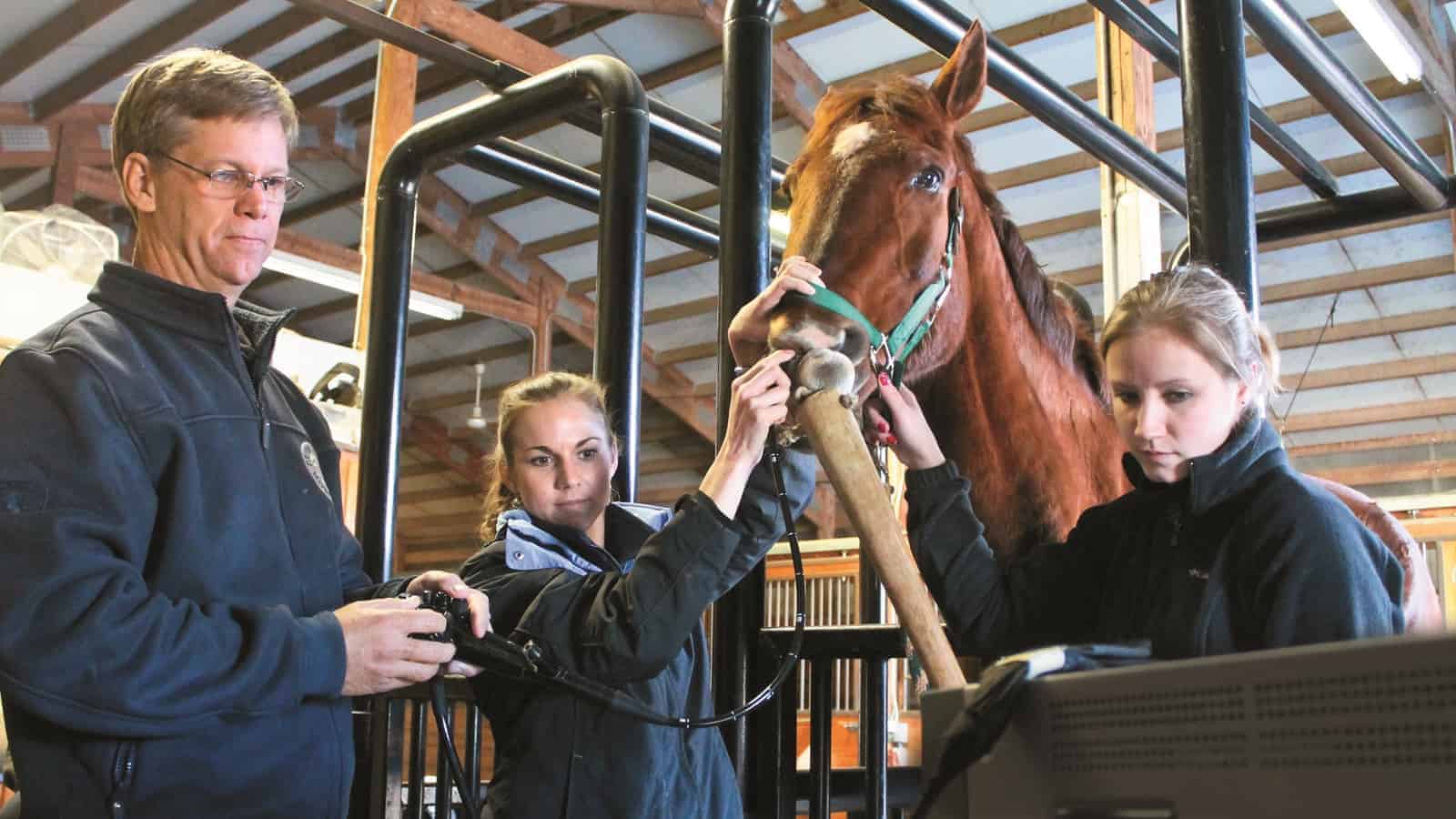Veterinarians Discuss Gastric Ulcer Treatment Strategies for Horses

At the 2019 Annual American Association of Equine Practitioners Convention, held Dec. 7-11 in Denver, veterinary attendees gathered for a table topic discussion about treating gastric ulcers. Frank M. Andrews, DVM, MS, Dipl. ACVIM (LAIM), LVMA Equine Committee professor and director of the Equine Health Studies Program and section chief of large animal medicine at Louisiana State University, and Sarah Reuss, VMD, Dipl. ACVIM, equine professional services veterinarian with Boehringer Ingelheim, moderated the talk.
Gastric ulcers develop when portions of the horse’s sensitive stomach lining get exposed to stomach acid. Ulcers that form on the stomach’s upper mucosa cause equine squamous gastric disease (ESGD), and those that form on the lower glandular region cause equine glandular gastric disease (EGGD)—two similar conditions with different risk factors and management strategies. Glandular disease also tends to be more challenging to treat than squamous disease, said the moderators.
The only way to definitively diagnose either condition is with gastroscopy (passing an endoscope through the nostril and down the esophagus to view the horse’s stomach)
Create a free account with TheHorse.com to view this content.
TheHorse.com is home to thousands of free articles about horse health care. In order to access some of our exclusive free content, you must be signed into TheHorse.com.
Start your free account today!
Already have an account?
and continue reading.

Written by:
Alexandra Beckstett
Related Articles
Stay on top of the most recent Horse Health news with



















